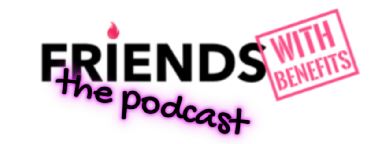
Feeling being pushed away by someone you love can be one of the most heart-wrenching experiences. It’s a situation that brings a mix of confusion, sadness, and a desperate need for answers. Why is someone who once drew close now distancing themselves? This article aims to shed light on this painful experience and offer comfort and strategies for those going through it.
Understanding the reasons behind Being Pushed Away In A Relationship and learning how to cope with the emotional turmoil it causes is crucial. Whether it’s a temporary hurdle or a sign of deeper issues, there are ways to navigate these troubled waters.
In this article, you will learn:
- The common psychological reasons behind being pushed away.
- Effective strategies to cope with the pain and confusion.
- How to communicate effectively or when to move forward.
Let’s dive into understanding the complexities of feeling pushed away by someone you cherish.
JOIN FRIENDS-WITH-BENEFITS
The psychological underpinnings
When someone you love begins to distance themselves, it’s not merely a matter of changing feelings; often, it’s rooted in deeper, more complex psychological landscapes. Understanding the multifaceted reasons behind this behavior is crucial for both parties involved in being pushed away by someone you love. Distancing doesn’t arise out of nowhere but is a consequence of underlying issues that might have been beneath the surface of the relationship for a long time.
One of the primary reasons for this distancing is a fear of intimacy. This fear doesn’t necessarily come from not wanting closeness but rather from a deep-seated anxiety about what such closeness implies. It could be fear of vulnerability, fear of being hurt, or fear of losing one’s sense of self in the relationship.

People who have experienced betrayal or abandonment in past relationships, including familial ones, might find themselves instinctively pushing away someone they love to protect themselves from potential pain.
Unresolved personal traumas play a significant role in this behaviour. Trauma, especially when not adequately addressed, can impact a person’s ability to form and maintain healthy relationships. The trauma could be related to past relationships, childhood experiences, or even traumatic events that seemingly have no direct connection to intimacy.
These experiences can lead to trust issues, where the individual finds it difficult to believe that they won’t be hurt again. Consequently, they might push away their loved ones as a defensive measure against anticipated betrayal or disappointment.
Stress from external sources also cannot be underestimated. The pressures of life, whether related to work, financial worries, or health issues, can take a toll on one’s emotional bandwidth. When individuals are overwhelmed, they might unintentionally distance themselves from their partners, not because of a lack of love or affection but simply due to a lack of emotional and mental capacity to engage in the relationship fully.
Attachment styles, developed early in life, influence how individuals interact in their relationships. These styles are formed by early interactions with caregivers and continue to influence relationship dynamics in adulthood. Those with an avoidant attachment style, for instance, value their independence to a high degree and may perceive closeness as a threat to their autonomy. Their pulling away can be a defense mechanism, a way to maintain their sense of self and independence in the face of what they perceive as intruding intimacy.
Recognizing these psychological underpinnings is the first step toward addressing the issue of Being Pushed Away In A Relationship. It requires patience, empathy, and often, professional guidance to confront these complex emotional situations.
Only by understanding the root causes can both parties begin to heal and possibly work towards bridging the gap that has formed between them.

The emotional impact expanded
The emotional toll of being pushed away by someone you love extends far beyond the initial feelings of rejection and confusion. It’s akin to embarking on an unwanted emotional journey, one marked by highs and lows, each turn bringing its own set of challenges and emotions.
This section delves deeper into the complex emotions that unfold when one is pushed away by a loved one, highlighting the importance of approching these feelings with care and compassion.
At the heart of this experience lies the rollercoaster of hope and despair. Hope that the distancing is temporary, a mere hiccup in the relationship that can be overcome with time and effort.
Yet, this hope will struggle with confusion and profound sadness, as the reasons behind the distancing can be unclear or deeply misunderstood. The uncertainty surrounding the situation can lead to a relentless search for answers, further fueling the emotional turmoil.
Analyzing your own feelings during this time is crucial. It’s a necessary step in the healing process, allowing you to grieve not just the physical distance but also the emotional disconnection. Grief arises from mourning the loss of intimacy, of shared dreams, and the companionship that once was. This grieving process is needed because it paves the way for eventual healing and growth.
The impact on self-esteem and trust is particularly significant. Being pushed away can lead to self-doubt and questions about one’s worthiness of love and affection. It can erode the foundation of trust not only in the partner who is distancing themselves but also in others.
The breach of trust and the blow to self-esteem can carry over into future relationships, creating barriers to intimacy and openness. The fear of experiencing similar pain again may lead individuals to guard their hearts more closely, affecting their ability to connect with others fully.

Moreover, the emotional impact of Being Pushed Away In A Relationship can lead to a sense of isolation. Even when surrounded by supportive friends and family, the unique pain of feeling rejected by a partner can make one feel profoundly alone. This isolation can intensify the other emotional effects, creating a cycle that’s hard to break free from.
Addressing the situation requires time, patience, and often, the support of others. Whether through conversations with trusted friends, engaging in self-care practices, or seeking professional help, finding ways to process and work through these emotions is key.
It’s about building resilience, slowly but surely, to emerge from this experience with a deeper understanding of oneself and a renewed capacity for love and trust.
As we explore the complexities of being pushed away by someone you love, it’s essential to remember that healing is possible. It may not be an easy journey, but it also offers opportunities for personal growth and emotional depth.
Self-Care Strategies
Taking care of yourself is essential when facing the emotional pain of being pushed away by someone you love. Prioritizing self-care can help you heal, regain confidence, and rebuild your sense of identity.
Bullet Points:
- Explore New Social Opportunities: Consider signing up for a casual dating website like Shag to meet new people in a relaxed, pressure-free environment. This allows you to interact with others without the immediate expectations of a serious relationship, helping you rediscover the pleasure of social interactions and expand your social circle.
- Rediscover Joy in Social Interactions: Engaging in casual relationships can provide you with companionship and fun without long-term commitment. This can be an effective way to distract yourself from negative thoughts and foster positive experiences that contribute to your emotional well-being and the recovery of your social confidence.
- Engage in Activities You Love: Dedicate time to hobbies and interests that bring you happiness and a sense of personal fulfillment. Whether it’s painting, exercising, or learning something new, these activities can improve your mood, reduce stress, and provide an outlet for self-expression and self-connection.
- Practice Mindfulness and Relaxation: Incorporate techniques like meditation, yoga, or deep-breathing exercises to manage stress and promote emotional well-being. These practices can help you stay centered, reduce anxiety, and enhance your ability to face emotional challenges.
- Seek Support from Friends and Family: Surround yourself with loved ones who can offer comfort, understanding, and encouragement. Sharing your feelings with trusted people can alleviate emotional burdens, provide different perspectives, and strengthen your personal relationships.
Communicating and addressing the issue
Effective communication is the cornerstone of any attempt to address and possibly resolve the issue of being pushed away by someone you love. It requires a delicate balance of expressing one’s own needs and emotions while also being receptive to the feelings and perspectives of the other person. Below is a ten-step guide, designed to help individuals navigate this challenging process with empathy, understanding, and a genuine desire for resolution.
- Prepare Yourself Mentally and Emotionally: Before initiating any conversation, take time to reflect on your feelings and what you wish to communicate. Approaching the discussion from a place of calm and clarity can set a constructive tone.

- Choose the Right Moment: Timing can significantly impact the outcome of a conversation. Look for a quiet, private time when both of you are least likely to be distracted or stressed.
- Start with Positive Affirmations: Begin the conversation by affirming your love and appreciation for the person. This helps create a supportive environment and reduces the likelihood of defensive reactions.
- Use “I” Statements: Communicate your feelings and needs using “I” statements to avoid placing blame and making the other person defensive. For example, “I feel hurt when I sense distance between us.”
- Express Your Needs Clearly: Be specific about what you need from the relationship and your partner. Clarity can prevent misunderstandings and provide a clear path forward.
- Listen Actively: Give your partner the space to share their feelings and perspective. Listen without interrupting, and try to understand their point of view, even if it differs from yours.
- Acknowledge Their Feelings: Validate your partner’s emotions by acknowledging them. This can foster empathy and show that you genuinely care about their wellbeing.
- Seek Common Ground: Identify areas where your needs and your partner’s needs overlap. Finding common ground can serve as a foundation for mutually beneficial solutions.
- Discuss Possible Solutions: Together think of potential ways to address the issues at hand. Be open to compromise and consider various approaches that could alleviate the situation.
- Consider Professional Help: If the conversation reveals deep-rooted issues or if communication remains a challenge, propose seeking couples’ therapy. A professional can provide unbiased guidance and help both partners navigate through their issues in a constructive manner.
Implementing this decalogue requires patience, persistence, and a genuine commitment to understanding and addressing the root causes of the distance in the relationship. Remember, the goal is not just to bridge the gap but to strengthen the bond between you and your loved one, ensuring a healthier and more resilient relationship moving forward.

Embracing change: When letting go leads to new beginnings
In our journey through understanding and addressing the emotional turmoil of being pushed away by someone you love, we’ve explored the psychological underpinnings, the profound emotional impact, and strategies for communication.
However, it’s crucial to recognize that not all relationships can—or should—be saved. Sometimes, the bravest and most healthy decision you can make is to end a relationship that’s doomed to fail. Holding onto something that’s no longer serving you can prevent you from experiencing life to its fullest, including meeting new and interesting people who can add value and happiness to your life.
Letting go of a relationship that’s reached its end is a step towards healing, self-discovery, and opening your heart to new possibilities. It’s about acknowledging that ending a chapter can lead to the start of a new, potentially more fulfilling one. And while the thought of starting over can be daunting, there are ways to ease into this new phase of your life.

Variety of Relational Contexts
Feelings of being pushed away aren’t limited to romantic relationships; they can also occur in friendships and family dynamics. Exploring different types of relationships can offer valuable insights into your interpersonal needs and desires.
- Experience Different Types of Relationships: By joining a casual dating platform like Shag, you have the opportunity to explore connections without the pressure of long-term commitment. This allows you to interact with people from diverse backgrounds and better understand how you relate in different contexts, enriching your understanding of social dynamics.
- Discover Your Interpersonal Needs: Interacting with a variety of individuals can help you identify what you truly seek in your relationships. This exploration can reveal important aspects about your preferences, personal boundaries, and what makes you feel valued and understood.
- Enhance Your Social Skills: Meeting new people in different settings can improve your communication skills and ability to interact socially. Facing different situations and personalities can help you develop greater empathy, assertiveness, and confidence in your interactions.
- Boost Your Self-Confidence: Positive experiences in different relationships can enhance your self-esteem and reduce feelings of isolation. Each successful new connection can be a step toward rebuilding your personal security and recognizing your worth in relationships.
- Clarify Your Expectations: Clearly communicate your intentions in any new connection to ensure mutual understanding and respect. Establishing from the outset what you’re seeking can prevent misunderstandings and create stronger foundations for healthy and satisfying relationships.
How friends with benefits can help you move on
Are you navigating the aftermath of a breakup and feeling ready to dip your toes back into the dating world without the pressure of commitments? Friends With Benefits offers a community where individuals can connect on a casual basis, allowing you to meet new people at your own pace.
If you have had a partner for a long time, you may be afraid of rejection on dates. Do you know how to overcome that fear? Dating!
With an easy-to-use interface and a focus on casual relationships, Friends With Benefits caters to those who aren’t looking for anything serious post-breakup. It’s a space where you can explore new connections, enjoy the company of others, and regain your confidence in modern dating.
Imagine finding a platform that understands your need for light-hearted, commitment-free interactions. Friends With Benefits is designed to help you slowly reintroduce yourself to the dating scene, offering the freedom to specify what you’re looking for and match with like-minded individuals.Take the first step towards healing and new experiences by joining Friends With Benefits today. It’s a place where you can be upfront about your intentions, meet interesting people, and possibly find joy and companionship without the weight of expectations.
JOIN FRIENDS-WITH-BENEFITS



